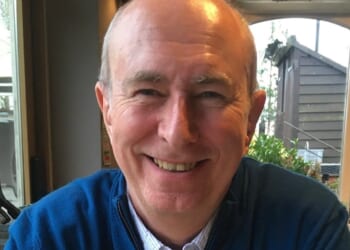Dame Jacqueline Doyle-Price DBE is a former Minister, Whip and MP for Thurrock 2010-24.
Kemi Badenoch has come in for some stick for being honest enough to admit she hasn’t watched ‘Adolescence’.
Personally I find it rather refreshing. It is tiresome to see political leaders who sniff the latest gimmick and try and run in front of it to generate a good headline. Indeed it is potentially dangerous if policy is determined by what makes a good TV drama.
There is no doubt that “Adolescence” is an amazing piece of drama. The filming in one take adds to the intensity for the viewer and has made it a compelling and thought provoking piece of television.
Documentary it is not.
As someone who has spoke up regularly about sexual violence I do welcome that “Adoloscence” has provoked discussion about online misogyny. It has been said before that the online world is a Wild West where vulnerable people can be exposed to content which causes them harm. Parents think that having their children upstairs means they are safe. If this series makes parents more alert to the content their children might be accessing then that would be valuable learning.
This is a drama which is centred on the boy and the impact on his family when he is arrested and charged with murder. It is therefore inevitable that the focus has been on the vulnerability of boys. Nevertheless it is disappointing that once again we are looking at the issue of violence against women and girls through the wrong lens. Debate has focused on Jamie more as a victim than as the perpetrator of a violent murder.
If this is something which is to be shown in our schools there must be much focus on the girls in this story.
In “Adolescence” our real victim is Katie Leonard. We don’t learn much about her. When topless photos of Katie were shared around the school, she fought back, she defended herself. Yet she is referred to as the bully. It s a good life lesson for girls. Slut shaming and victim blaming are behaviours which are witnessed often. If we are serious about tackling violence against women and girls it is incumbent on all of us to stop looking the other way and to properly call it out. We cannot complain that these behaviours are a result of online grooming when they are left unchallenged in the real world.
As it is, we do not focus enough on how girls have to deal with the increased sexualised behaviour in schools. Pornographic content is just a click away on a smart phone. When I was at school it was under the counter of the video shop and handed over in black plastic bags. It certainly wouldn’t be viewed by boys on the school bus home.
And we simply haven’t spoken enough about incel culture.
The proliferation of online material has legitimised and normalised male entitlement. Day after day we hear of murders perpetrated by men against women. We simply haven’t done enough to call out the vile nature of murders committed by men against the women in their lives.
It still feels like there are too many men who simply do not understand the day to day impact that male violence against women and girls has on us. We live with the fact that dangerous men can materialise anywhere. That does not mean we see all men as dangerous. But it could be your son. It could be your work colleague. And when other men fail to challenge sexism and banter about women, the disturbed male receives comfort that his views are shared.
As befits a drama, the portrayal of the school as little more than a ‘holding pen’ for dysfunctional pupils was somewhat sensationalist. Nevertheless school leaders and governing bodies do need to challenge themselves that they are doing all they can to provide a safe environment. I recall visiting a school to give a talk to female pupils about sexual violence. In that safe girl only space, they were comfortable enough to share their day to day experience. The staff present found it challenging but promised to do something to tackle it. Perhaps more schools could do the same.
And while the debate continues about the need for an inquiry into the rape gangs, we are again focusing on the culture of the perpetrators. Talking about the men who did this. Not the girls they raped and abused. Not why our public institutions chose to fail those victims. Girls who weren’t considered to deserve any better. Victim blaming appears embedded in the public services that should be pursuing justice. Until we learn how things were covered up and ignored and action is taken to prevent it happening again, how can women and girls have confidence that the law will protect them?
We can talk forever about tackling violence against women and girls but it is just words if we do not put victims at the centre of this debate. Let’s remember it is ‘male’ violence against women and girls. If we are serious about tackling it then we should be very clear that all gender based violence is unacceptable without exception. It should be as socially unacceptable to engage in derogatory banter about women as it is to drink and drive.
And if Adolescence is to be shown in schools the message should be that it is Katie Leonard that is the victim in this drama. Not Jamie Miller.





![Jasmine Crockett Justifies Mass Illegal Immigration With Bizarre Argument [WATCH]](https://www.right2024.com/wp-content/uploads/2025/03/1742007023_Jasmine-Crockett-Justifies-Mass-Illegal-Immigration-With-Bizarre-Argument-WATCH-350x250.jpg)

![NYC Tourist Helicopter Falls into Hudson River, Siemens Executive and Family Among Those Killed [WATCH]](https://www.right2024.com/wp-content/uploads/2025/04/NYC-Tourist-Helicopter-Falls-into-Hudson-River-Siemens-Executive-and-350x250.jpg)








